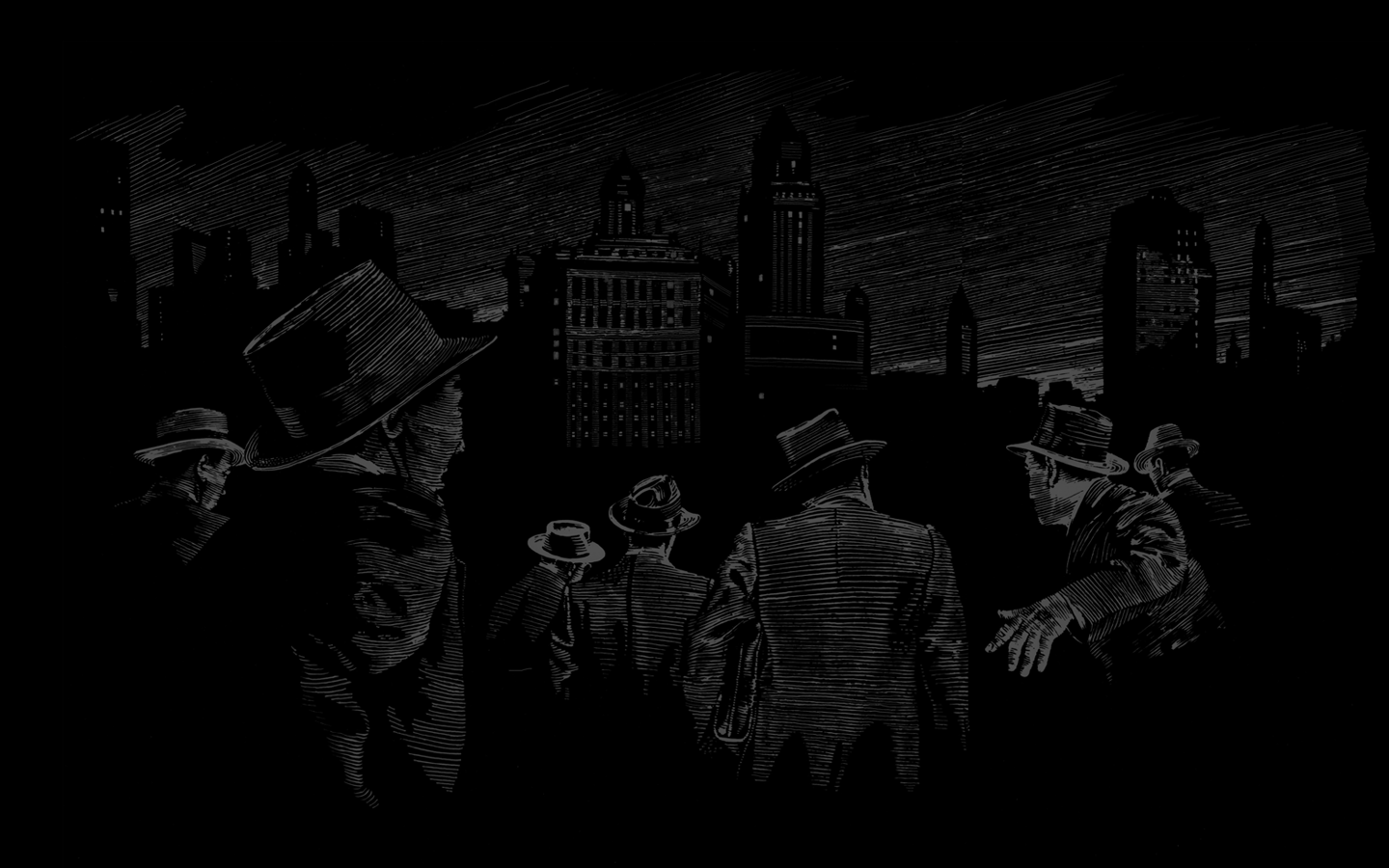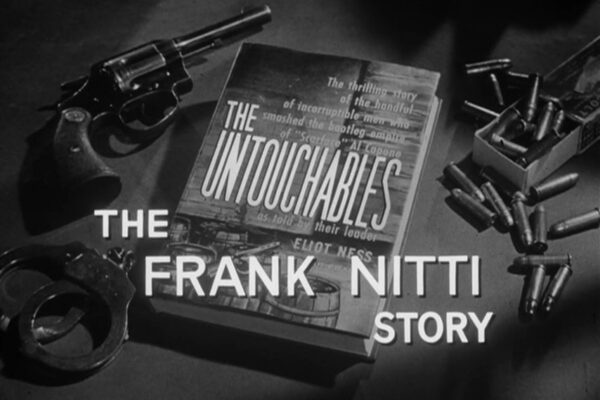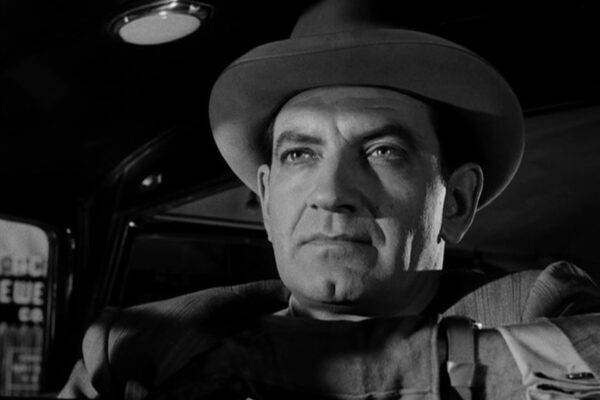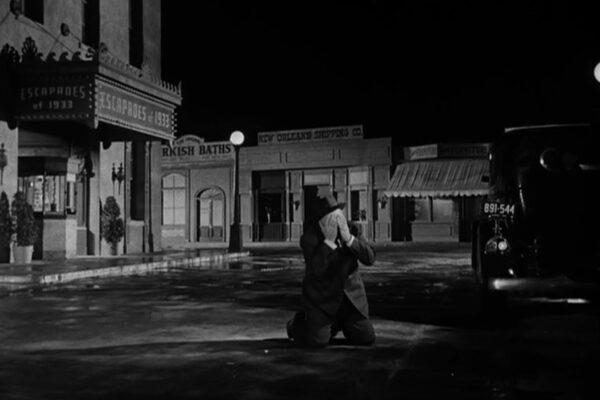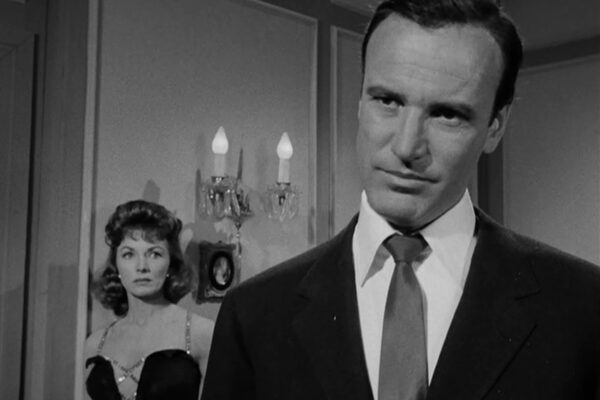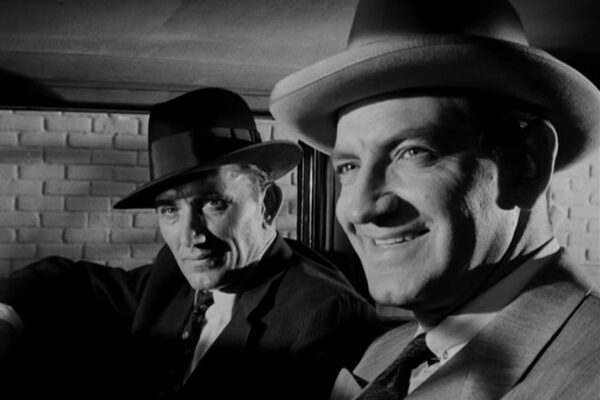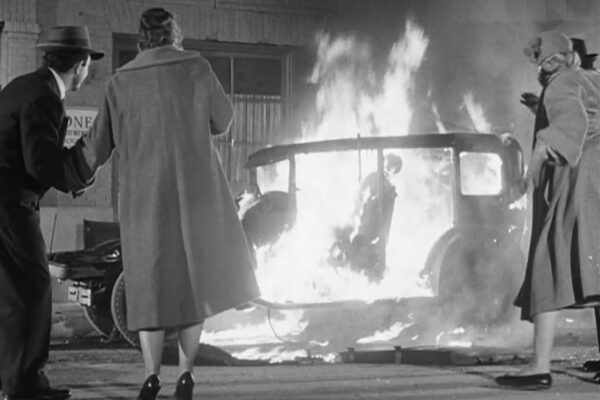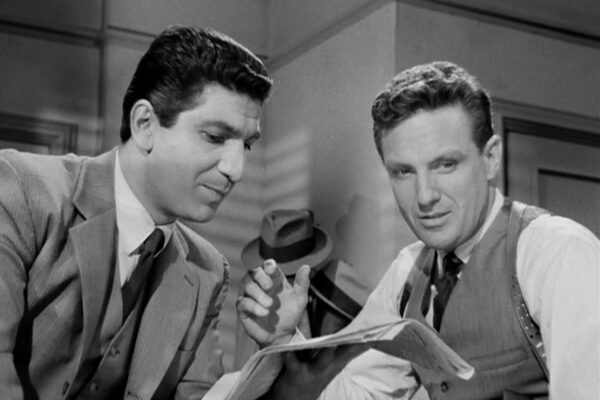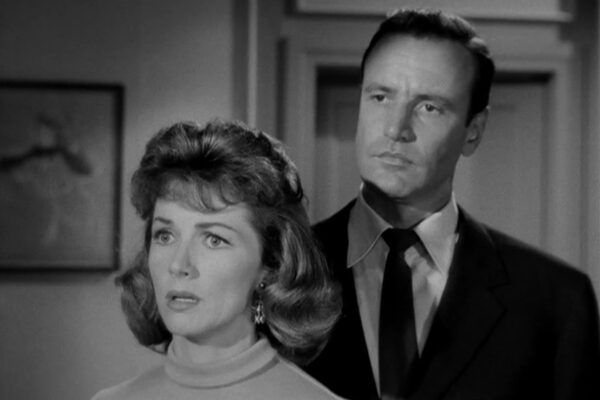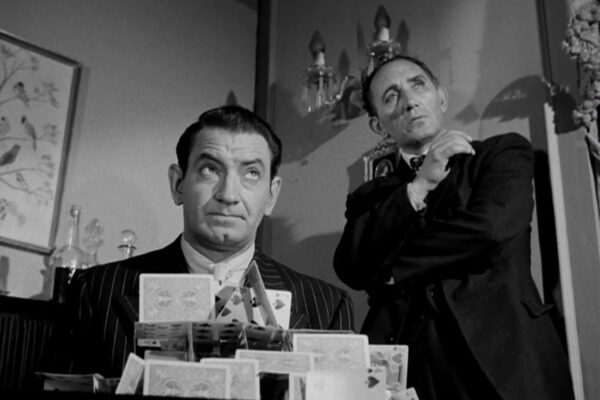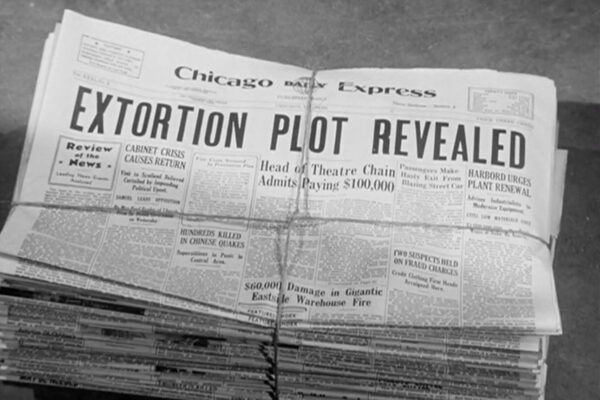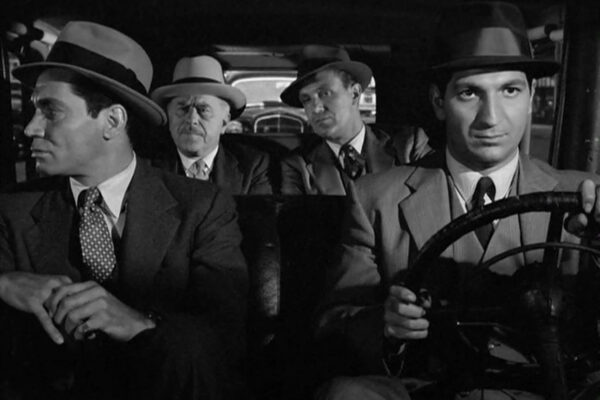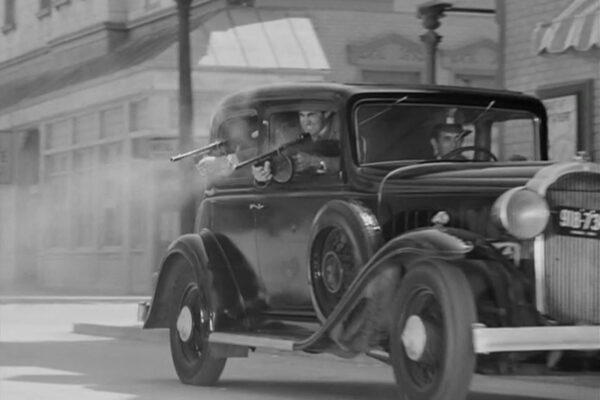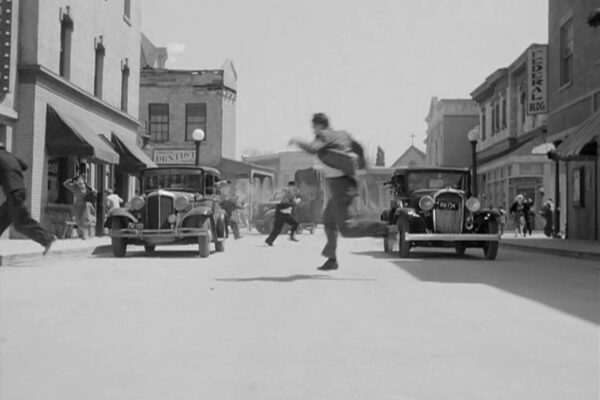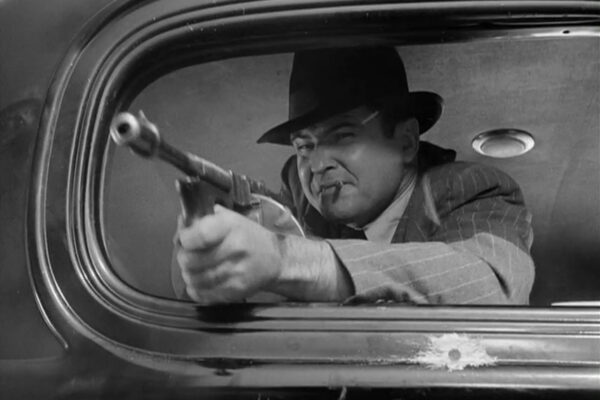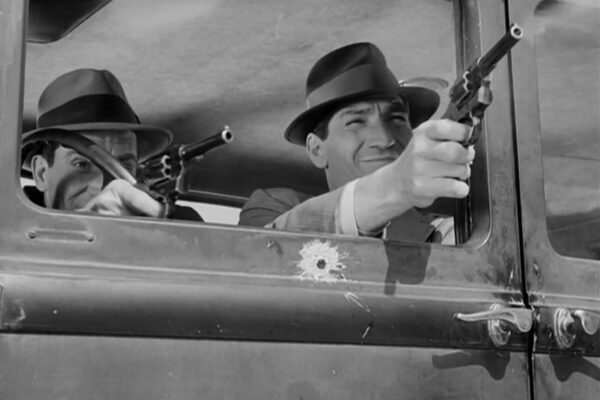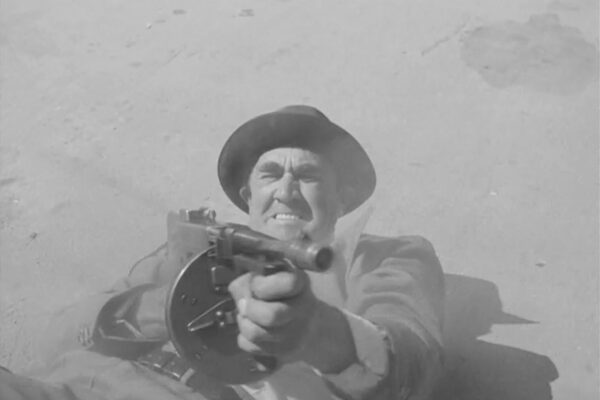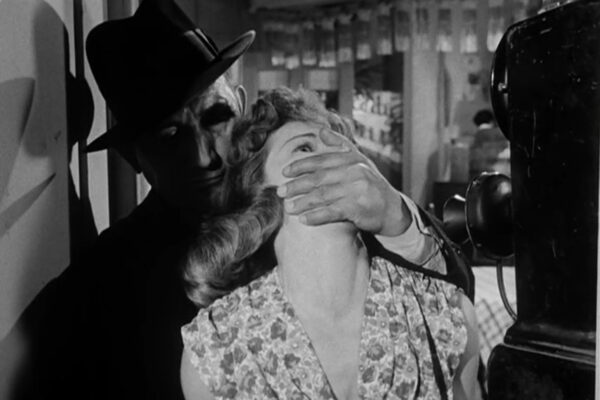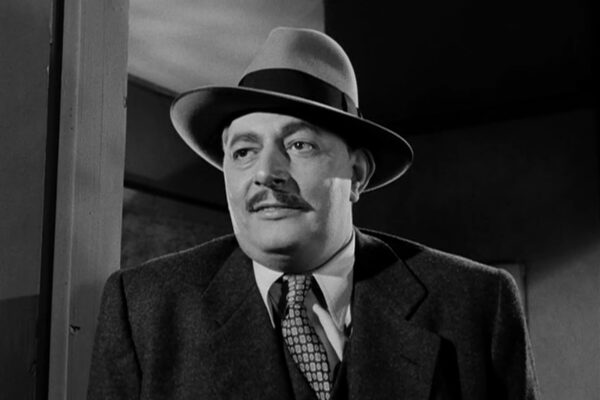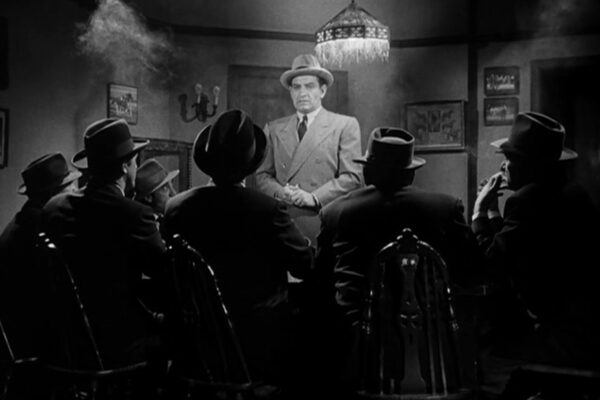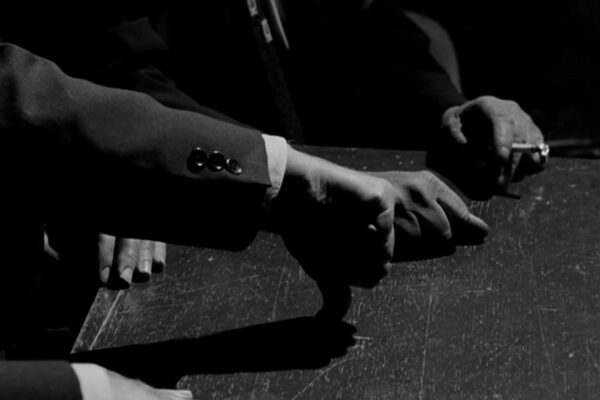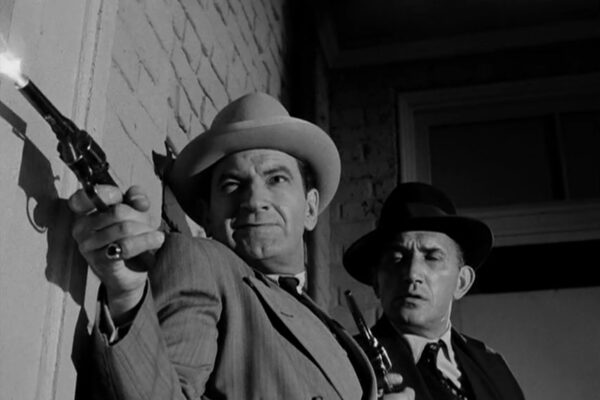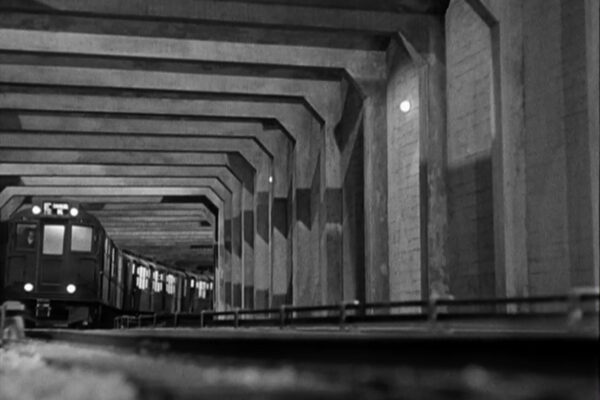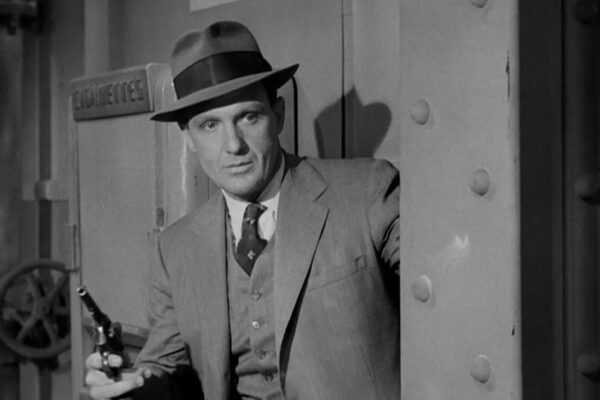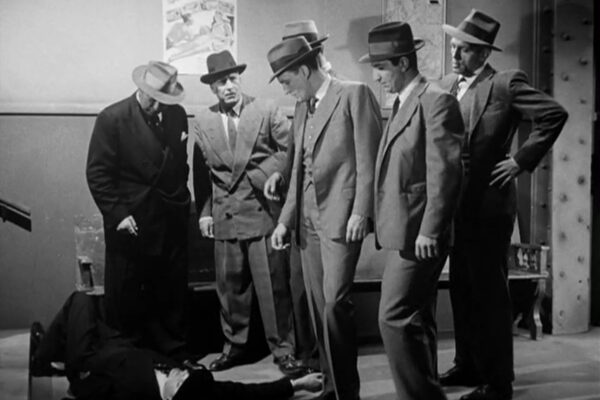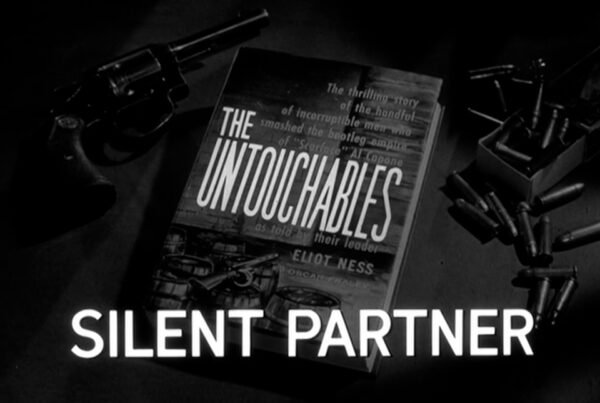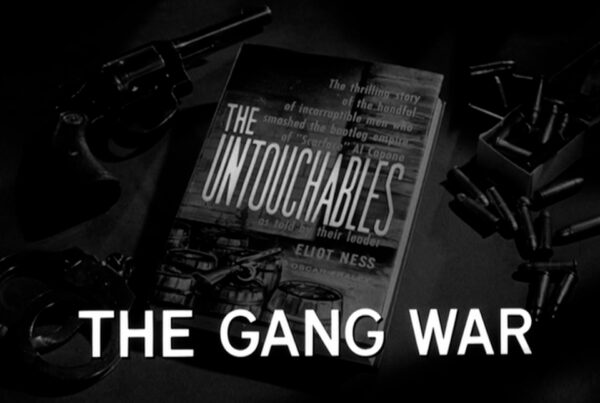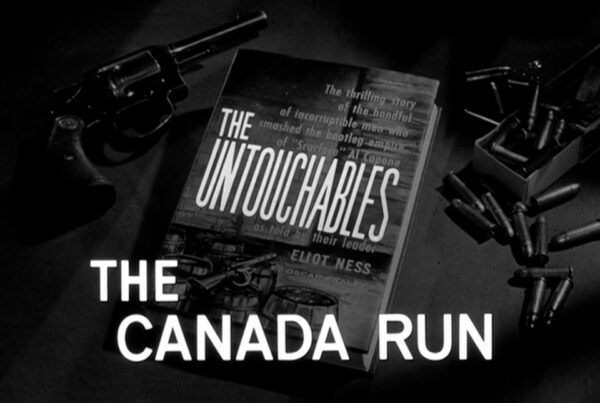THE FRANK NITTI STORY
Airdate: April 28th and September 22nd, 1960
Story by Harry Essex
Written by Lee Blair Scott
Directed by Howard W. Koch
Produced by Josef Shaftel
Director of Photography Charles Straumer and Robert B. Hauser
Co-starring Richard Anderson, Myron McCormick, Dick Foran
Special Guest Star Bruce Gordon
Featuring Frank de Kova, Phyllis Coates, Alex Gerry, Frank Wilcox,
Frank Albertson, Harry Harvey, Sr.
“In 1934, Prohibition had been repealed, and the Capone mob, without its leader, serving tune at Alcatraz Prison, was desperate for new sources of revenue. With the instincts of jackals for an easy kill, they picked the nation’s small theater owners for their prey. The type of operation used, was one they knew best: extortion.
“On a quiet street in Oak Park, Illinois, suburb of Chicago, Harold Coldman was closing his theater. Coldman was the owner and operator of two small motion picture houses. He thought he hadn’t an enemy in the world. But he was soon to learn that he was mistaken. To put their extortion plan into operation, the Capone mob had chosen Frank Nitti, long-time enforcer for Scarface Al Capone, and Nitti’s shadow and triggerman, Louis Campangna.”
Innocently asking for directions to Lincoln Park, Nitti coaxes Harold C-Oldman (Harry Harvey, Sr.) over to his car where Louis Campanga throws acid in his face, blinding him. The attack quickly issues a mob warning to other theater owners: sign up or die, and business suddenly picks up.
Eager to establish a larger market, Nitti orders Sydney Rogers (Richard Anderson) and Ramsey Lenox (Myron McCormick) to proceed with the local manager of the large, national Star Theater chain, Jerry Dockstone (Dick Foran). Correctly second-guessing the mob’s next move, Ness approaches Dockstone first, but the manager fails to become concerned. But soon, Rogers and Lenox appear in Darkstone’s office with a cordial, business-like offer that Lenox likens to “insurance”. Annoyed, Dockstone verbally throws the pair out and phones Ness-, who arranges to wire the manager’s office for the mob’s return, assumed by both men to be inevitable. Instead of Rogers and Lenox, however, Nitti and Campangna take over and Dockstone’s car explodes in flames.
Immediately after Dockstone’s funeral, Variety reporter Jason McIntyre (Frank Albertson) takes out after the mob in a series of scathing articles and is subsequently found severely beaten. Ness visits the unintimidated newsman in the hospital where he reveals that the president of Star Theaters, J. N. Miller (Alex Gerry), had met secretly with Nitti to cut a deal. Ness immediately heads for Miami to confront Miller with the possibility of being summoned by the grand jury should he fail to cooperate voluntarily. Frightened and confused, Miller resists, but Ness orders an audit of Star Theaters books where clear evidence of a large extortion payment exists on paper.
Returning to Chicago, Ness discovers an outstanding warrant for Sydney Rogers, whose real name is Zoran Bresnovich. Arriving at an apartment leased to Rogers’ girlfriend, one-time showgirl Ellie Morley (Phyllis Coates), Ness takes Bresnovjch into custody, then returns to Miami to encourage Miller to accompany him to Chicago with a summons. Miller demands protection and Ness obliges, but during their trip from the airport, mob triggermen launch a running gun battle for several city blocks until their car crashes. While inspecting the wreck, a fallen thug reaches for his weapon and kills agent Cam Allison, who had dashed in front of Ness to prevent him from being shot. After Allison’s funeral, the Untouchables return to the case with a renewed
vengeance.
Still in jail, Rogers demands that Nitti bail him out, but Nitti hopes that Rogers will take the fall alone. When Rogers threatens to implicate Nitti in the extortion scheme, the Enforcer sends Lenox to bail him out. But Lenox warns Rogers that Nitti will surely have him killed and suggests he leave the country at once. Persuaded, Rogers quickly contacts his girlfriend, Elllie, who begins packing their bags only to find Nitti and Campangna at her door. Feigning ignorance, she registers surprise to learn that Rogers is on his way home and ducks out for party favors to celebrate. Immediately, Nitti discovers the suitcases in their bedroom and sends Campangna out to look for her. Trying to head off and warn Rogers, Morley is knifed in a telephone booth.
Realizing the precariousness of their position, Nitti and Campangna attempt to flee, but the mob’s messenger, Mario, appears and orders Nitti to take time out for a meeting with his superiors. Nitti soon finds himself frantically defending his record to unsympathetic ears. For his failure, Nitti is given the choice of taking his own life or having it done for him.
Returning to his suite, Nitti defiantly prepares to leave the country but finds Ness and the Untouchables arriving to take him into custody. On the run with guns ablaze, Nitti disappears down a subway kiosk where Campanga is felled. With no place left to go, Nitti slips and falls onto the tracks.
“So died Frank Nitti, the brutal enforcer for Al Capone, under the rushing wheels of a Chicago train. Eliot Ness’s battle with Nitti and the extortion mob ended in complete victory. Sydney Rogers confessed to his participation. He got ten years at Leavenworth. Ramsey Lenox, for his part, was disbarred for life. He died of acute alcoholism in 1943. J. N. Miller, the president of Star Theaters and the main target of the mob, was dismissed with a reprimand.”
REVIEW
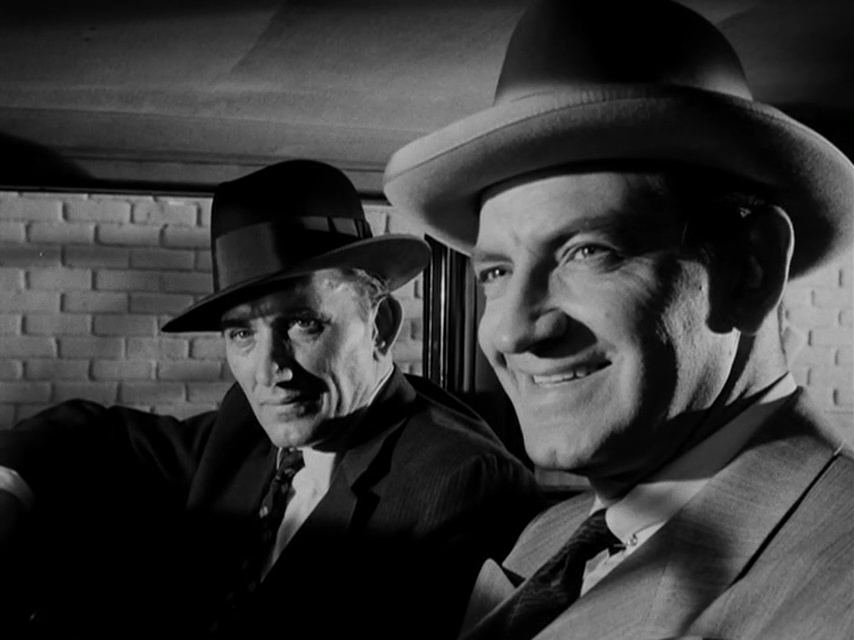
The snarling Frank Nitti (Bruce Gordon) meets his end – only to be resurrected in the Second Season.
For his final hour as executive producer, Quinn Martin wanted to go out with a proverbial bang. The Frank Nitti Story is a powerful, violent and very entertaining episode – and features Bruce Gordon’s Frank Nitti at his naughtiest.
Winchell is now barking his narratives with newsreel urgency. Though there is still some room for a breath or two, the pace has quickened. Before long he’ll be in full command of the soundtrack with his authentic radio-style bulletins.
Perhaps the most interesting moment comes at the end when Nitti, having made a colossal mess of the protection scheme, is called to account by You-Know-Who. Summoned by a crippled emissary named Mario, who seems to be bad news simply by showing up, Nitti tries to reverse his slide by pleading to a faceless sextet, by their demeanor, if not the accent of the spokesman, would seem to be none other than the Chicago Mafia and who seem just as likely to have had a girl scout taken out for shorting them on cookies. While Winchell sayeth not the word Mafia, it’s easy to tell who this bunch is. The spokesman throws off one of those marvelously authentic, suspiciously Mediterranean accents and the group performs a fist-pound-followed-by-thumbs-down ritual.
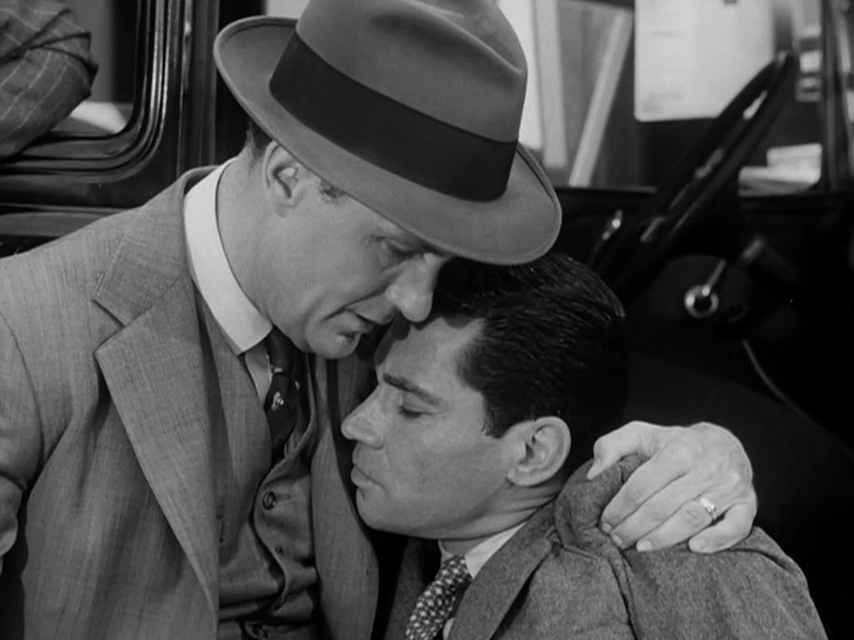
Federal agent Cam Allison (Anthony George) intercepts a hail of machine gun fire meant for Eliot Ness.
The weakest moment is the demise of Cam Allison (Anthony George), Ness’ right-hand man for thirteen episodes. Allison saves Eliot Ness’s life by stepping in front of him when a felled hood grabs his chopper and squeezes off a few rounds before being gunned down. Checkmate, a new television show, beckoned the ambitious George and there was little else for his character to do except step on a bomb. What should have been a moment of high drama becomes a clumsy exit.
George had asked for a “peaceful exit,” and in response Quinn Martin stitched him up with squibs. (At the time, George had claimed that having his character die would paint his career in an unflattering light.) With his departure, Cam Allison becomes the second co-star to move on in the First Season following Jerry Paris left, and ultimately the third and last Untouchable to die on-screen in the Desilu canon. (Joe Fuseli perished in the original Playhouse installment in manner similar to Allison and LaMarr Kane bought it later in The Tri-State Gang.)
Following Allison’s death, Winchell’s narration states that Allison had just joined the squad “only a few short months before.” It’s a cute acknowledgement made simply for the sake of the audience, when in fact his debut episode Little Egypt took place in 1931 and The Frank Nitti Story episode takes place in 1934.
Anthony George wasn’t the only actor that Quinn Martin heard from during the production of this episode. Upon learning that Frank Nitti would also meet his end in the season finale, actor Bruce Gordon protested. Since the debut of The Untouchables, Martin’s career had been given the lift that Desi Arnaz promised him in 1959 and subsequently, Martin founded QM Productions to pursue the development of his own television programs. Incoming producer Jerry Thorpe appealed to have Frank Nitti stay on as well, to no avail – killing Nitti was his parting gift to Desilu.
One of Desilu’s executives comforted Gordon with the reminder that since episodes did not air in any chronological order, he could easily be reinstated and he was right – Frank Nitti would return several episodes into the Second Season in the excellent The Purple Gang and eventually appear in 23 of the show’s episodes during its four-year run.
This hour marks the conclusion of the First Season. Unfortunately, none of these programs will ever turn up again on the network after summer reruns due largely to the arrival of Paul Picerni, who will bury the memory of Flaherty and Allison. While many of the early episodes were clumsy, some of the more spectacular ones, The Big Squeeze, Three Thousand Suspects, and several others, should have returned for the benefit of those who missed them in the era well before the home video recorder.
QUOTES
MACINTYRE: “What’s a little beating between friends? They can’t scare me. Of course they might kill me but they can’t scare me. They’re merchants of fear and when they can’t sell it, they’re out of business.”
OBSERVATIONS
• The character of Mario, a crippled messenger from the Chicago Outfit, is a nice and ominous touch.
HISTORICAL NOTES
• The real Franco Nitto brought about his own demise on March 19, 1943. This episode pays homage to events that actually occurred, including the Capone mob’s extortion attempt Hollywood studios. The real Louis Campagna and Phil D`Andrea, among others, pressured Nitti to kill Willie Bioff, who had been instated by Nitti as the leader of a theater union and recently turned states evidence against the mob. Despondent and drunk, Nitti committed suicide in a railroad yard close to his home on the day before he was to be indicted for the extortion scheme. The leaders of Nitti’s gang went to prison – and informant Bioff was assassinated 12 years later by an exploding truck bomb, much like Jerry Dockstone’s death in this episode.


